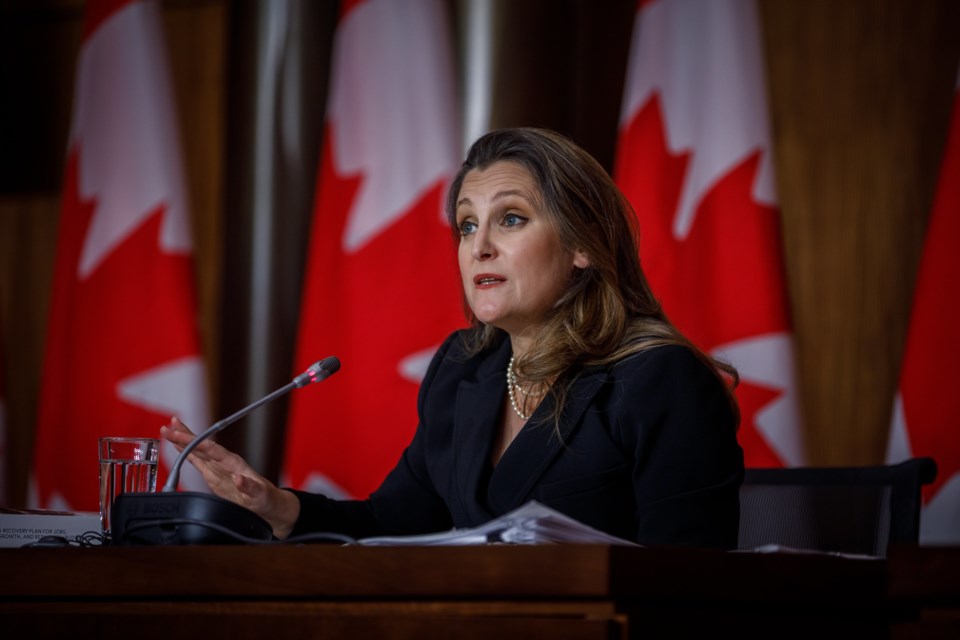Time was, a federal budget was a breathlessly-anticipated, market-jolting, ultra-secretive, capital-E Event.
Journalists were typically dared for weeks to find a morsel of the meal and were exploited by ministers and bureaucrats in an annual ritual of floating trial balloons of purported budget bits to gauge public reaction in advance so as to retreat if it were highly unfavourable.
When Doug Small, a happy-go-lucky reporter with Global News, got his hands on the 1989 budget document in – where else? – an Ottawa bar the night before it was to be released, all Hades broke loose when he decided to broadcast its contents.
Mounties ultimately found the leaker (a Queen’s Printer employee), Small was threatened but ultimately never faced charges, then-finance minister Michael Wilson was hounded but never ultimately resigned, and security of the budget printing was examined and ultimately redoubled. It was pretty fabulous drama, if mainly for us village folk of parliamentary Ottawa.
Fast forward 35 years and the script is flipped.
Prime Minister Justin Trudeau and his ministers have gone out of their way in the last few weeks to spell out what would be in Tuesday’s budget – or at least the upbeat stuff, to get day-by-day positive coverage this month to boost the Liberal vehicle’s depleted battery. For a limping administration, it has served as a respite at a political-spin resort.
What we knew already Tuesday was that there was money for AI about five years later than would have been pivotal, funds for school food programs about three generations later than would have been optimal, a swarm of measures for housing supply about a half-century past due, and a touch-up of the defence budget that will be years to materialize and serve as too little, too late for our international reputation.
The premise of budget secrecy is now transformed into budget subterfuge, with the good news front-loaded in the prayer that the veneer of buoyant info would prevail as the lingering image. But remember, this is a tax-and-spend government, even if this year’s exercise is more spend-and-tax in sequence. The idea of cutting dare not speak its name.
Thus Trudeau and Finance Minister Chrystia Freeland had to hand us the latest invoice, and the payment plan, for the ideas it has for us in the years ahead. In the absence of its strategy to spur investment, it has focused on taxing the people who, and companies that, actually spur investment. So much for a pursuit of higher productivity.
Taxing the wealthier Canadian is no-brainer politics but non-brainer policy, particularly at this stalled economic juncture. But when you’re 15-20 points behind in the polls and you only have a couple of shots in the arsenal before facing the electorate, this is where you go: to “economic justice,” as Freeland calls it, because it is one of the few revenue equivalents of the tooth fairy you can manufacture.
Thus more higher-incomed people and firms will be swallowed up by higher capital gains taxes, which will yield $19.4 billion over the next four years. Make at least $250,000 on capital gains, and starting June 25 you’ll pay two-thirds of the excess of it in taxes, up from half. It’s expected to hit about 40,000 wealthier Canadians and 307,000 companies. It’s hard to see how it generates in them enthusiasm in investing, but easy to see how it generates enthusiasm in fleeing – or shifting behaviour temporarily to wait for a change in government.
The government’s expectation of GDP growth will depend on the population change from immigration, not from any inherent economic momentum. Its bet on electric vehicles with tax credits in the production supply chain is increasingly questionable. Its plan for $52.9 billion in new spending over the next five years carries with it an expectation that provinces will play along in certain cases.
The expected $40-billion deficit this fiscal year and the $39.8-billion and $39.9-billion deficits next year and the year after, along with debt service charges totalling $47.2 billion this year and rising in years ahead, have become ho-hum for the Liberals. They no longer make the headlines because they’re old news.
A backfiring moment came when Freeland drew strong applause in her Commons budget speech for saying it’s considered smart “for government to get out of the way.” Conservatives chimed in with a rousing Bronx cheer. They owe whoever wrote that line a beer, even if it’s taxed more heavily this month.
Kirk LaPointe is a Glacier Media columnist with an extensive background in journalism






